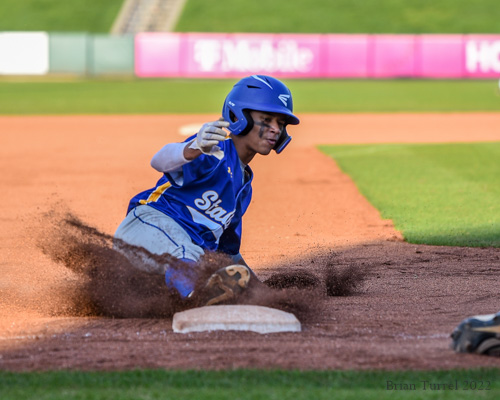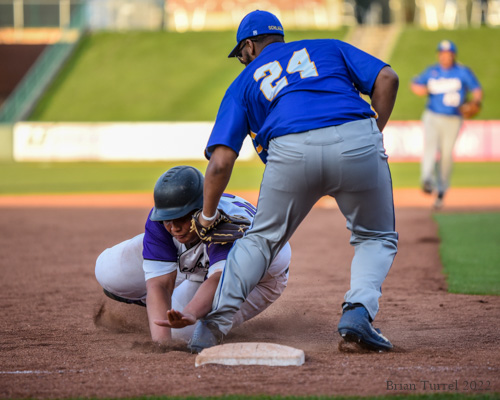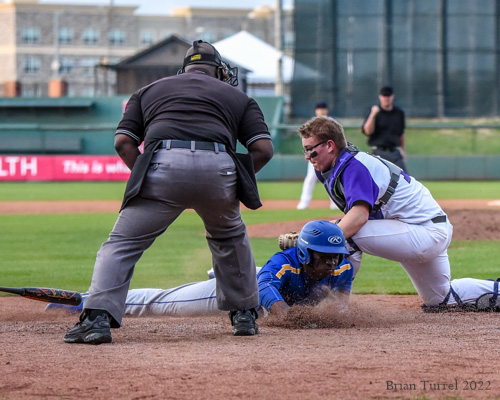Lawmakers to return in late May for closing bell of 2022 session
by Tim Carpenter, Kansas Reflector
Topeka — The House and Senate completed a flurry of votes early Friday sending to Gov. Laura Kelly bills legalizing sports gambling, investing more than $1.1 billion in the state’s pension system and blocking government mask mandates for all contagious disease outbreaks.
The 2022 Legislature, which plans to return to Topeka in late May to complete the annual session, also plowed through legislation adding details to the state budget for the fiscal year starting in July. An unprecedented influx of tax revenue — lawmakers had a $3 billion surplus to work with — allowed lawmakers to craft a state budget designed to hold in reserve nearly $2 billion in the treasury for rainy-day funds.
Fate of Senate Bill 84 creating the opportunity for state-owned and tribal casinos to be in the business of sports wagering was unclear until the Senate’s 21-13 vote, which involved six Republican senators passing. The same bill easily cleared the House on a vote of 73-49. The gambling expansion measure passed with backing from Republicans and Democrats.
Sen. Rob Olson, R-Olathe, said the bill would bring under state law sports betting conducted through off-shore platforms or in the black market. It would bring Kansas in step with more than 30 states that had some form of legal wagering on athletic events and would create jobs in the state, he said.
“Kansans are already betting on sports,” said Sen. Jeff Pittman, a Leavenworth Democrat who also voted for the bill. Sen. Pittman, D-5th Dist., also represents part of Wyandotte County. “Many do it on illegal platforms that take money out of the state. Sports betting is not for everyone. This is just another avenue for avid players.”
Opponents asserted the bill violated contracts with the four designated state casinos, endangered the well-being of adults and youth, produced a paltry amount of state tax revenue and questionably set aside most of that cash in a special fund to attract the Kansas City Chiefs to Kansas.
“We will destroy people’s lives,” said Sen. Mark Steffen, R-Hutchinson. “We don’t know their names right now. We don’t know what they look like. But we do know that will happen.”
The Senate and House also forwarded to Kelly a bill that would transfer $1.125 billion from the state general fund to the Kansas Public Employees Retirement System. Under Senate Bill 421, the state would pay off $253 million owed to KPERS for payments withheld by the Legislature in fiscal years 2017 and 2019. The bill also earmarked $853 million to be deposited in KPERS by June and an additional $271 million by December.
Critics of the legislation said they welcomed investment in a pension system serving more than 315,000 Kansans, but would prefer some of that cash be spent to immediately end the state’s 6.5% sales tax on groceries. Another idea rejected by the Legislature was to cut a check to KPERS retirees in the form of a 13th monthly benefit check at a cost of $143 million.
“We could afford to do that,” said Sen. Pat Pettey, D-Kansas City, Kansas. “I think we shortchanged them. We didn’t move in the right direction.”
Sen. Richard Billinger, the Goodland Republican and chairman of the Senate Ways and Means Committee, said paying off debt to KPERS and making upfront contributions into the system would free more than $460 million over the next five years for other government priorities. He based that projection on KPERS’ portfolio earning returns of 7.75%, but advisers to KPERS said that high of return was unlikely.
“We made a promise that when they retire they would get a certain amount of money,” Billinger said. “I’m working to make sure when they retire they get every penny they were promised. Nothing less.”
The KPERS bill was approved in the House 106-10 and by the Senate 26-10.
Meanwhile, the Legislature sent to the Democratic governor a revised state budget in House Bill 2510 that would leave the state with a treasury balance of more than $1 billion in June 2023 and with $750 million in a budget stabilization fund. The votes were 33-7 in the Senate and 95-22 in the House.
“Our course of direction and action for this year was to pay off debt, put money away in savings and have one-time investments,” said Rep. Troy Waymaster, a Bunker Hill Republican and chairman of the House Appropriations Committee. “That’s what we looked at when we were going through budgets this year given the surplus we had when we started this session.”
He pointed to a provision in the budget retiring $332 million in bond debt owed on dredging of John Redmond Reservoir, construction of a building at University of Kansas Medical Center, development of the National Bio and Agro-Defense facility in Manhattan and building the KBI’s crime lab at Washburn University.
The Legislature passed a separate bill that would gradually reduce the state’s 6.5% sales tax on groceries by 2025. One-time investments in the budget were made in universities, community colleges, technical colleges and the Kansas State Fair with cash tied to federal economic relief grants to Kansas, Waymaster said.
“We’ve got ourselves in a great position in event of a downturn,” said Rep. Kathy Wolfe Moore, D-Kansas City, Kansas. “We’ve got plenty of money set aside in a rainy-day fund. We have a great ending balance and we’re paying off debt.”
Near the end of a lengthy work day that stretched to 2 a.m. Friday, the Legislature sent the governor Senate Bill 34. It would prohibit any state or local government entity or official from imposing a mask mandate in response to an infectious disease outbreak.
The measure inspired by opponents of general vaccination requirements was adopted 64-53 in the House and 23-17 in the Senate.
Sen. Kellie Warren, the Leawood Republican seeking the GOP nomination for attorney general, said the COVID-19 pandemic opened a Pandora’s box that violated individual liberties of Kansans. The Legislature conducted hearings that produced testimony about government overreach in the workplace, schools and churches, she said.
“What we heard is not pretty,” Warren said. “This bill is reasonable.”
Rep. John Eplee, an Atchison Republican and family physician, joined Republicans and Democrats in both chambers who said extending restrictions created in reaction to the COVID-19 pandemic into a sweeping public-health prohibition in terms of all infectious diseases was irresponsible.
Kansas Reflector stories, www.kansasreflector.com, may be republished online or in print under Creative Commons license CC BY-NC-ND 4.0.
See more at https://kansasreflector.com/2022/04/29/kansas-legislatures-late-night-surge-covers-sports-betting-budget-kpers-and-covid-19/










